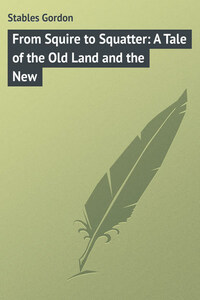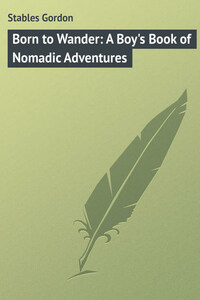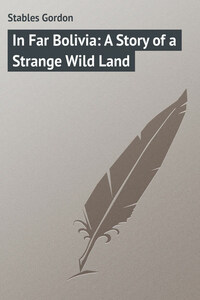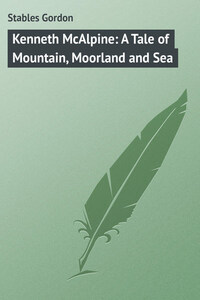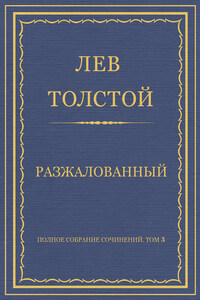Chapter One
Book I – At Burley Old Farm
“Ten to-morrow, Archie.”
“So you’ll be ten years old to-morrow, Archie?”
“Yes, father; ten to-morrow. Quite old, isn’t it? I’ll soon be a man, dad. Won’t it be fun, just?”
His father laughed, simply because Archie laughed. “I don’t know about the fun of it,” he said; “for, Archie lad, your growing a man will result in my getting old. Don’t you see?”
Archie turned his handsome brown face towards the fire, and gazed at it – or rather into it – for a few moments thoughtfully. Then he gave his head a little negative kind of a shake, and, still looking towards the fire as if addressing it, replied:
“No, no, no; I don’t see it. Other boys’ fathers may grow old; mine won’t, mine couldn’t, never, never.”
“Dad,” said a voice from the corner. It was a very weary, rather feeble, voice. The owner of it occupied a kind of invalid couch, on which he half sat and half reclined – a lad of only nine years, with a thin, pale, old-fashioned face, and big, dark, dreamy eyes that seemed to look you through and through as you talked to him.
“Dad.”
“Yes, my dear.”
“Wouldn’t you like to be old really?”
“Wel – ,” the father was beginning.
“Oh,” the boy went on, “I should dearly love to be old, very old, and very wise, like one of these!” Here his glance reverted to a story-book he had been reading, and which now lay on his lap.
His father and mother were used to the boy’s odd remarks. Both parents sat here to-night, and both looked at him with a sort of fond pity; but the child’s eyes had half closed, and presently he dropped out of the conversation, and to all intents and purposes out of the company.
“Yes,” said Archie, “ten is terribly old, I know; but is it quite a man though? Because mummie there said, that when Solomon became a man, he thought, and spoke, and did everything manly, and put away all his boy’s things. I shouldn’t like to put away my bow and arrow – what say, mum? I shan’t be altogether quite a man to-morrow, shall I?”
“No, child. Who put that in your head?”
“Oh, Rupert, of course! Rupert tells me everything, and dreams such strange dreams for me.”
“You’re a strange boy yourself, Archie.”
His mother had been leaning back in her chair. She now slowly resumed her knitting. The firelight fell on her face: it was still young, still beautiful – for the lady was but little over thirty – yet a shade of melancholy had overspread it to-night.
The firelight came from huge logs of wood, mingled with large pieces of blazing coals and masses of half-incandescent peat. A more cheerful fire surely never before burned on a hearth. It seemed to take a pride in being cheerful, and in making all sorts of pleasant noises and splutterings. There had been bark on those logs when first heaped on, and long white bunches of lichen, that looked like old men’s beards; but tongues of fire from the bubbling, caking coals had soon licked those off, so that both sticks and peat were soon aglow, and the whole looked as glorious as an autumn sunset.
And firelight surely never before fell on cosier room, nor on cosier old-world furniture. Dark pictures, in great gilt frames, hung on the walls, almost hiding it; dark pictures, but with bright colours standing out in them, which Time himself had not been able to dim; albeit he had cracked the varnish. Pictures you could look into – look in through almost – and imagine figures that perhaps were not in them at all; pictures of old-fashioned places, with quaint, old-fashioned people and animals; pictures in which every creature or human being looked contented and happy. Pictures from masters’ hands many of them, and worth far more than their weight in solid gold.
And the firelight fell on curious brackets, and on a tall corner-cabinet filled with old delf and china; fell on high, narrow-backed chairs, and on one huge carved-oak chest that took your mind away back to centuries long gone by and made you half believe that there must have been “giants in those days.”
The firelight fell and was reflected from silver cups, and goblets, and candlesticks, and a glittering shield that stood on a sideboard, their presence giving relief to the eye. Heavy, cosy-looking curtains depended from the window cornices, and the door itself was darkly draped.
“Ten to-morrow. How time does fly!”
It was the father who now spoke, and as he did so his hand was stretched out as if instinctively, till it lay on the mother’s lap. Their eyes met, and there seemed something of sadness in the smile of each.
“How time does fly!”
“Dad!”
The voice came once more from the corner.
“Dad! For years and years I’ve noticed that you always take mummie’s hand and just look like that on the night before Archie’s birthday. Father, why – ”
But at that very moment the firelight found something else to fall upon – something brighter and fairer by far than anything it had lit up to-night. For the door-curtain was drawn back, and a little, wee, girlish figure advanced on tiptoe and stood smiling in the middle of the room, looking from one to the other. This was Elsie, Rupert’s twin-sister. His “beautiful sister” the boy called her, and she was well worthy of the compliment. Only for a moment did she stand there, but as she did so, with her bonnie bright face, she seemed the one thing that had been needed to complete the picture, the centre figure against the sombre, almost solemn, background.
